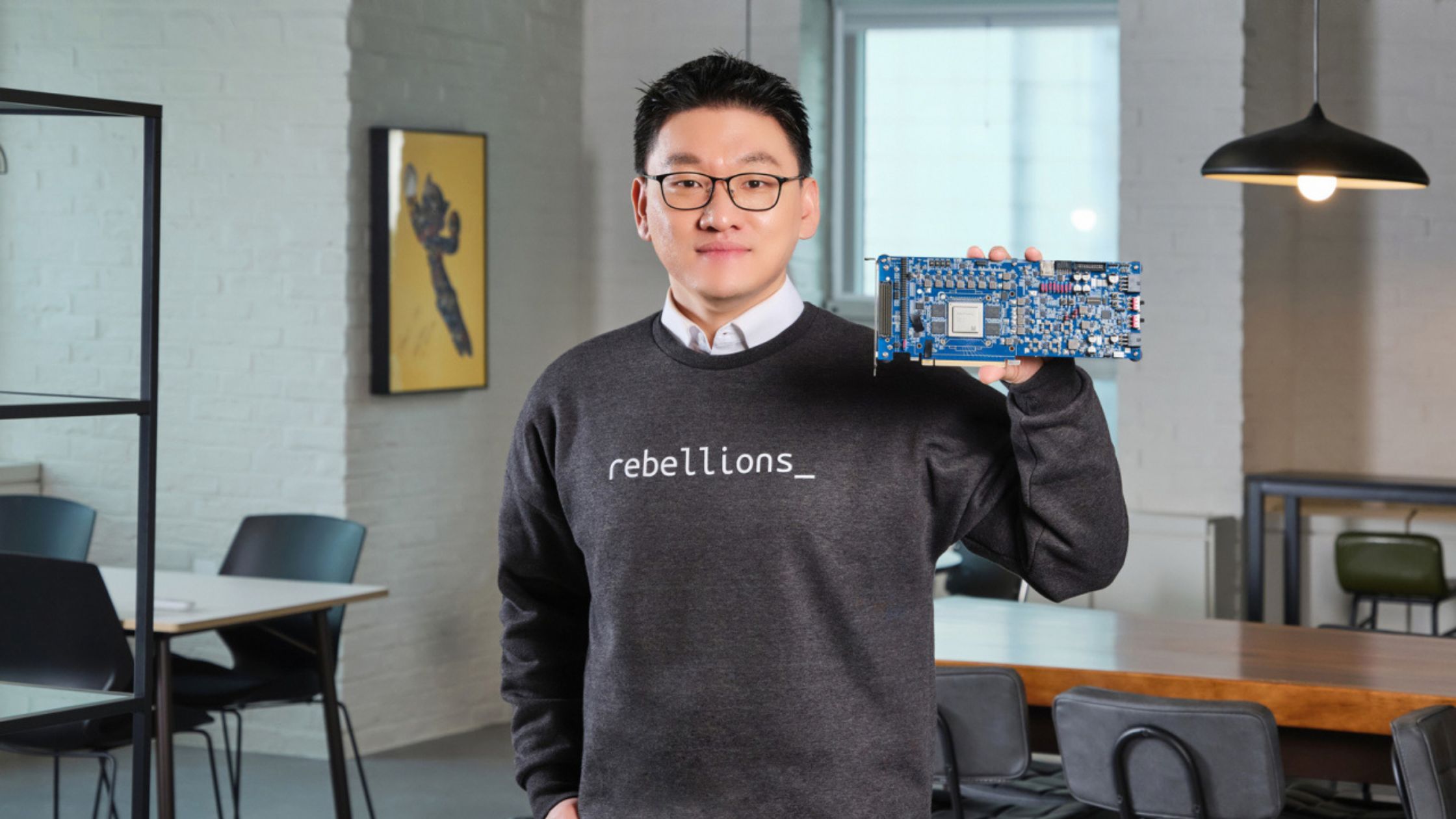AsiaTechDaily – Asia's Leading Tech and Startup Media Platform

Rebellions Raises $250M: Inside South Korea’s Bold Bid to Challenge Nvidia in AI Chips
Backed by Samsung, Arm, and Pegatron, the Seoul-based startup is building energy-efficient AI accelerators designed to power the world’s next wave of intelligent data centers.
Rebellions, South Korea’s first AI chip unicorn and one of Asia’s fastest-growing semiconductor startups, has raised $250 million in Series C funding at a $1.4 billion valuation. The round was backed by global heavyweights Arm, Samsung Ventures, and Pegatron VC, signaling strong strategic confidence in the company’s mission to reshape the AI infrastructure landscape.
This funding is expected to help Rebellions to be at the center of Asia’s emerging semiconductor resurgence, where countries are racing to reduce reliance on U.S. giants like Nvidia and AMD. With AI workloads exploding across industries, Rebellions is betting on energy-efficient, high-performance inference chips — a space that could define the next decade of computing.
Strategic Partnerships: A Global Play
Rebellions’ deep partnerships with Samsung and Arm make this round far more than a funding story — it’s a coordinated push to create a homegrown alternative to Western chip dominance.
- Samsung, already manufacturing chips for Rebellions, will mass-produce the next-generation REBEL-Quad using its 2nm GAA process, the company’s most advanced technology.
- Arm’s participation brings architectural expertise, enabling better software-hardware integration for global data centers.
- Pegatron VC and Korea Development Bank add strength from the manufacturing and institutional sides, ensuring Rebellions has both industrial and financial backing to scale.
This network of strategic investors creates a rare blend of chip design, fabrication, and deployment capabilities — a vertical alignment few startups in the AI chip ecosystem can match.
The REBEL-Quad: Reimagining AI Efficiency
At the heart of this strategy is REBEL-Quad, Rebellions’ flagship AI accelerator. Built with a chiplet-based architecture and equipped with 144GB of HBM3E memory, it’s designed to deliver peta-scale AI inference while consuming significantly less power than GPU-based systems.
It also holds the distinction of being the world’s first UCIe-Advanced AI accelerator, meaning it supports modular, interoperable design — a key advantage as data centers look to integrate different types of processors for specific workloads.
In simpler terms, Rebellions is not just making faster chips; it’s building smarter, more flexible infrastructure for the AI age.
From Seoul to Saudi Arabia: Expanding the AI Frontier
The new funding will fuel Rebellions’ global expansion — across North America, Europe, and Asia-Pacific, including Japan, the U.S., and Saudi Arabia.
The startup has already made significant inroads into Saudi Arabia’s Vision 2030 initiative through its subsidiary in Riyadh, backed by earlier investment from Wa’ed Ventures, the venture arm of Aramco.
Rebellions’ chips are already deployed in national AI projects, helping Saudi Arabia and other nations build sovereign AI infrastructure — a concept gaining momentum as countries seek to develop independent data and AI capabilities.
The company’s earlier-generation ATOM™ and ATOM™-Max chips are already powering commercial AI services in South Korea and enterprise workloads in Japan and the U.S.
Asia’s AI Chip Moment
Rebellions’ rise reflects a larger shift in Asia’s semiconductor strategy.
Governments and corporations across the region are pouring billions into AI hardware to ensure supply chain resilience and reduce dependence on a handful of global players.
- Japan and Taiwan are doubling down on AI manufacturing.
- China is developing domestic chip solutions amid export restrictions.
- South Korea, with companies like Samsung, SK Hynix, and now Rebellions, is positioning itself as the AI chip hub of Asia.
By building inference-focused chips — optimized for running AI models rather than training them — Rebellions targets a rapidly expanding niche. This could prove more scalable and sustainable than competing head-on with Nvidia’s training GPUs.
Why This Matters
Rebellions’ success carries significance beyond venture capital. It signals that Asia’s AI ecosystem is maturing — moving from software-driven innovation to deep-tech hardware leadership. The company’s approach to energy efficiency, scalable architecture, and strategic alliances could influence how nations design and deploy AI infrastructure.
As CFO Sungkyue Shin notes, “The world needs computing solutions that balance performance with efficiency.” Rebellions’ challenge — and opportunity — lies in proving that AI acceleration can be both powerful and sustainable.
Conclusion: A Turning Point for AI Hardware in Asia
Rebellions’ $250 million raise isn’t just another funding headline — it’s a signpost for the next phase of AI competition.
With global investors, world-class manufacturing, and a clear focus on efficient computing, the company stands at the crossroads of Asia’s semiconductor ambition and global AI demand.
If Rebellions can scale its technology and secure major cloud and government contracts, it could become South Korea’s answer to Nvidia — not by imitation, but by innovation rooted in efficiency and collaboration.



